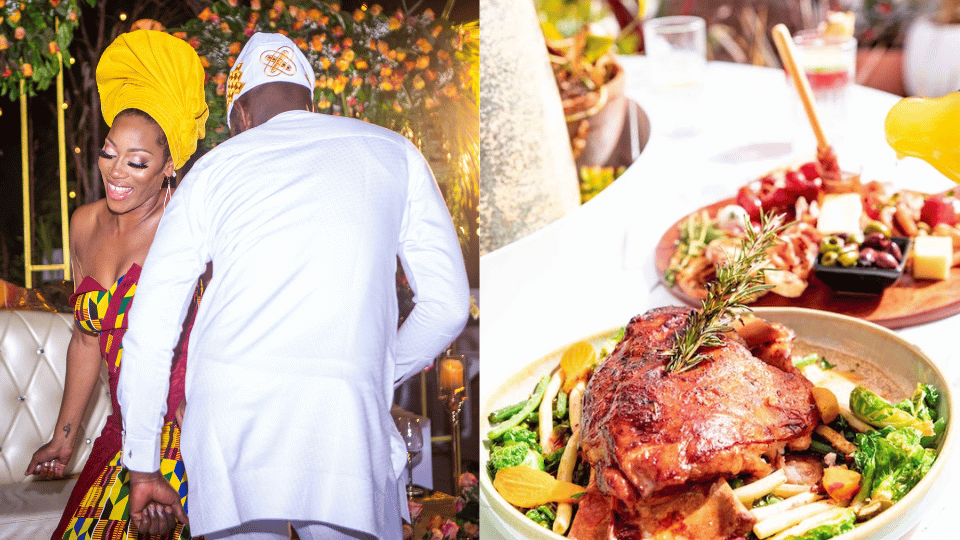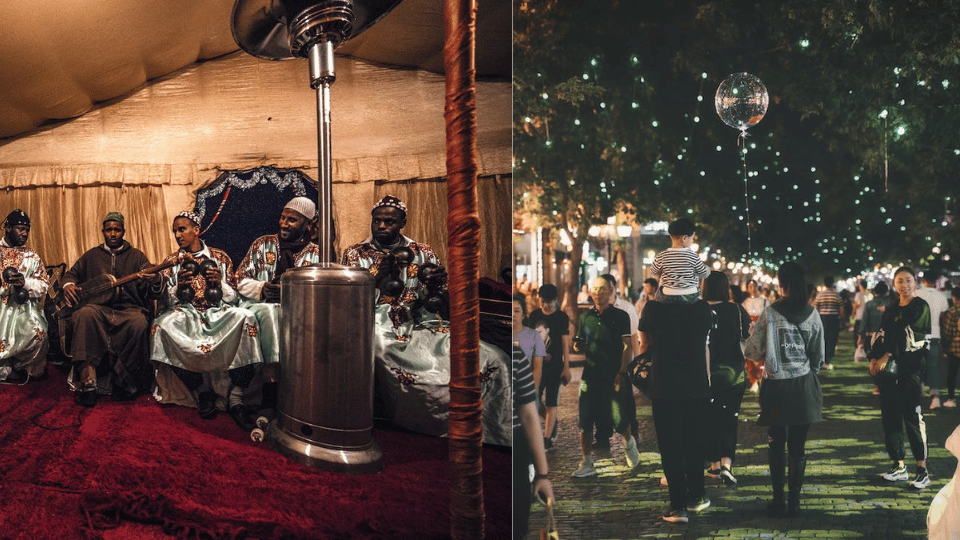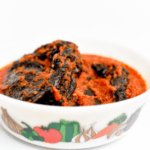An immersive tapestry of views, sounds, and tastes is created by the fusion of cuisine, culture, and community at African festivals, which are more than simply occasions for celebration. Join us at Kabaia as we go on an amazing journey through the intriguing histories of African festivals. Learn about the fascinating traditions, eye-catching attire, and mouthwatering cuisine that make these events so enjoyable. Prepare yourself for a remarkable journey of African celebrations, where customs are upheld, culture is embraced, and a sense of community permeates every drumbeat.
The Significance of African Festivals
African festivals provide as potent venues for communities to come together and celebrate their shared identity because they are rich in cultural, historical, and religious importance. These celebrations are of utmost significance because they enable the passing of customs from one generation to the next.
Elders ensure that their cultural history and values are maintained and treasured by passing on their experience, knowledge, and cultural traditions to younger members. African festivals serve as a reminder of the rich fabric of traditions and beliefs that have been handed down for ages via storytelling, music, dance, and rituals.
African celebrations often coincide with important turning points in the lives of people and communities. They indicate harvest times and represent plenty, thankfulness, and the bond between people and the land. These festivals also commemorate rites of passage, including as marriages, initiations, and coming-of-age rituals, which mark significant life changes and recognize the personal growth and development of community members. These festivals also include religious observances and rites, which provide a setting for collective prayer, devotion, and spiritual contemplation.
African festivals reinforce social ties, establish a feeling of belonging, and reaffirm a shared sense of identity among community members by remembering important events and upholding cultural customs. They provide a community where people can interact, work together, and support one another.
They also encourage togetherness, solidarity, and collaboration. These celebrations display the tenacity and vitality of the African people while serving as colorful representations of the continent’s rich and varied cultural history.
A Feast for the Senses: African Festival Foods


African gatherings are not complete without food, which serves as a focal point for bringing people together. Every event has its own distinctive foods that represent the many culinary traditions found all throughout the African continent. Here are some popular festival dishes to consider:
Jollof Rice
The popular West African delicacy jollof rice is the star of many gatherings. A mixture of tomatoes, onions, spices, and different meats or veggies is used to create this tasty rice meal. It is renowned for its vivid crimson hue, enticing perfume, and delectable flavor.
Injera
Injera is a traditional dish from Ethiopia and Eritrea that is usually consumed during celebrations. This spongy sourdough flatbread is typically used as a tool to shovel up different stews or wats. Festival-goers love injera for its distinct flavor and adaptability.
Bobotie
South African food is known as bobotie. Bobotie is often served during festivals. It is a flavorful, spicy dish of minced beef with an egg-based custard on top. This tasty meal demonstrates the variety of South Africa’s culinary past by fusing elements of Dutch, Malay, and African cuisines.
Food as a Cultural Ambassador
During African festivities, food acts as a unique cultural ambassador, bridging divides and fostering respect and understanding across various cultures. These celebrations provide a lively forum for the exchange of culinary customs, encouraging conversation and opening doors for intercultural encounters.
People may learn about the history, distinctive ingredients, and complex cooking methods that characterize African cuisine via the medium of food, therefore enhancing their cultural experiences.
African festivals provide a wonderful setting for people of all origins to interact and discover the many tastes and culinary traditions of the continent. African cuisine captivates the senses and opens doors to a greater knowledge of the cultural intricacies and customs related to the meal thanks to the fragrant spices, brilliant colors, and wide variety of ingredients utilized.
Festivals offer an atmosphere where people may learn from one another and develop a greater respect for the culinary legacy of Africa by sharing meals and taking part in community cooking activities.
Such festivals use cuisine as a means of fostering cross-cultural relationships and allowing people from different cultures to interact and appreciate the beauty of African culture. Overcoming cultural barriers, the act of eating together and breaking bread together generates a feeling of community and mutual understanding.
African food is celebrated at festivals so that people may enjoy the delicious tastes while also learning about the beliefs, traditions, and identity of the African diaspora. Communities are united through food as a means of bridging divides and creating long-lasting bonds based on respect and appreciation.
Community Bonding and Unity
African festivals promote communal cohesion and solidarity beyond simple celebrations of cuisine and culture. These gatherings foster a feeling of community and solidarity, fostering an atmosphere in which people may develop lasting relationships.
Festivals turn into occasions for communities to join together, put aside differences, and embrace a common identity. People gather to create and take part in a shared experience via the act of community cooking and sharing meals. Food preparation and consumption are now common activities that strengthen the idea of shared responsibility and promote a feeling of community.
Conversations, laughing, and storytelling take place as people gather around the table, furthering the development of social ties and creating enduring memories. These festivals often include customary dances, music, and rituals that invite participation from the local populace.
These colorful cultural manifestations strengthen bonds between individuals, generating a feeling of community and national pride. Festivals provide people with a stage on which to display their abilities, know-how, and creativity, enabling them to add to the general joy.
Preserving Traditions for Future Generations
African festivals have a crucial role in maintaining cultural traditions and transferring them to new generations. Younger people may actively interact with their ancestry via these festivals and develop a profound awareness of the traditions, values, and practices of their ancestors. These traditions are assured to be preserved by integrating the young people into a variety of festival activities, such as food preparation, cultural performances, and storytelling.
It is very important for young people to help prepare meals during African festivities. They learn traditional culinary methods, recipes, and the cultural importance of certain ingredients via practical experience.
Through their active engagement, they gain not only useful culinary knowledge but also a feeling of pride and respect for their culinary history. African festivals also provide the younger generation a chance to display their abilities via cultural performances.
They become active participants in the creative manifestations that characterize their communities by learning traditional dances, songs, and musical instruments, so assuring the preservation and perpetuation of these cultural traditions.
Additionally, oral histories, mythologies, and ethical lessons are transmitted via storytelling. The younger generation develops a stronger sense of origins and cultural identity via this storytelling, preserving significant tales and ideals for the next generations. Read for learning more about the traditions of cooking with Authentic African Ingredients.
Conclusion
As the rhythmic beats of traditional drums and the tantalizing aroma of flavorful dishes fill the air, African festivals come alive as vibrant tapestries of culture, community, and culinary delights. These joyous celebrations not only bring people together but also serve as invaluable gateways for preserving ancient traditions and passing them on to future generations.
From the rhythmic movements of dancers to the secrets shared in the art of cooking, the younger individuals actively participate, immersing themselves in the vibrant heritage that defines their identity. Such festivals weave a colorful thread of cultural pride and unity, ensuring that the vibrant tapestry of traditions will continue to flourish and inspire generations to come.




